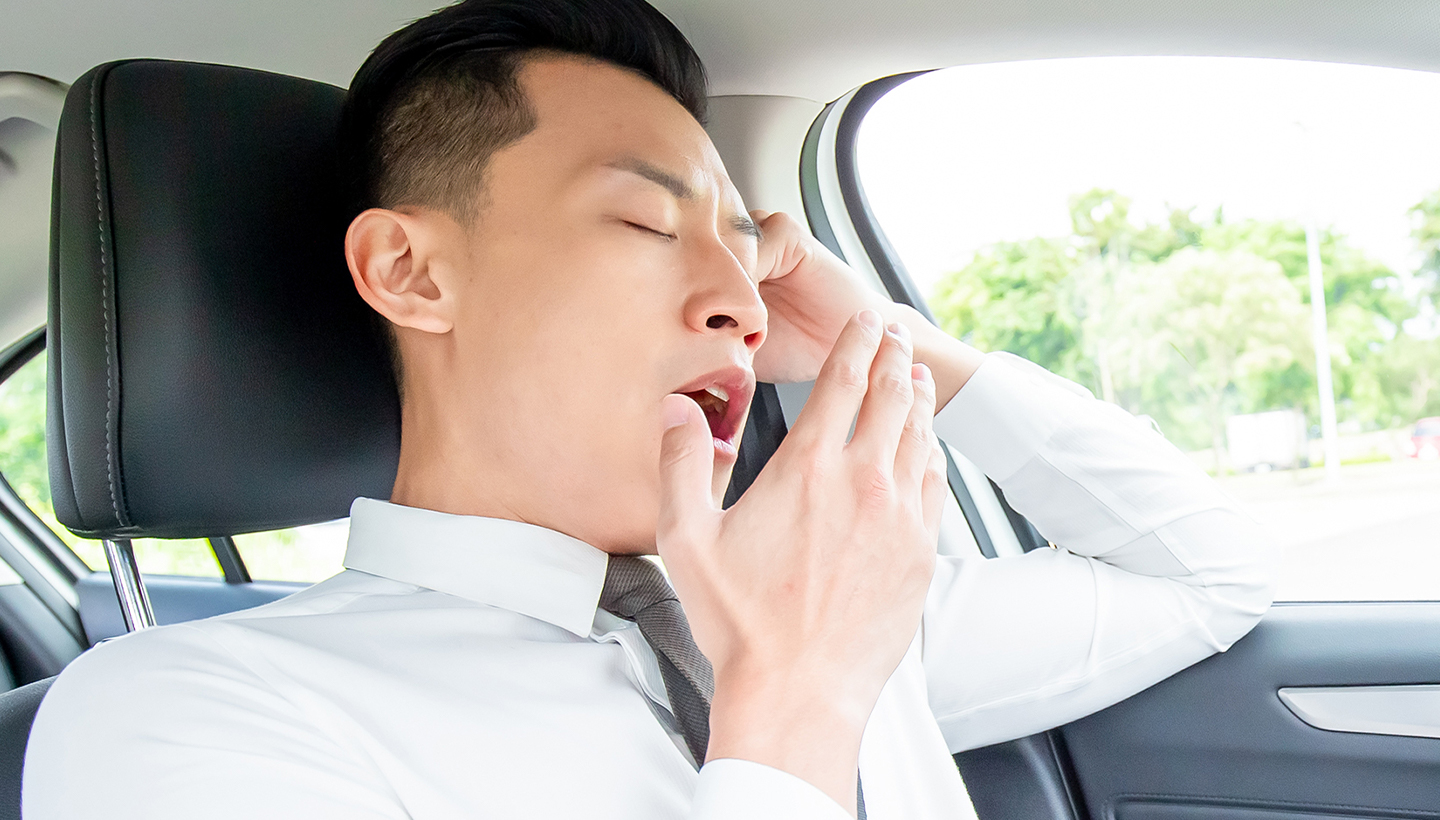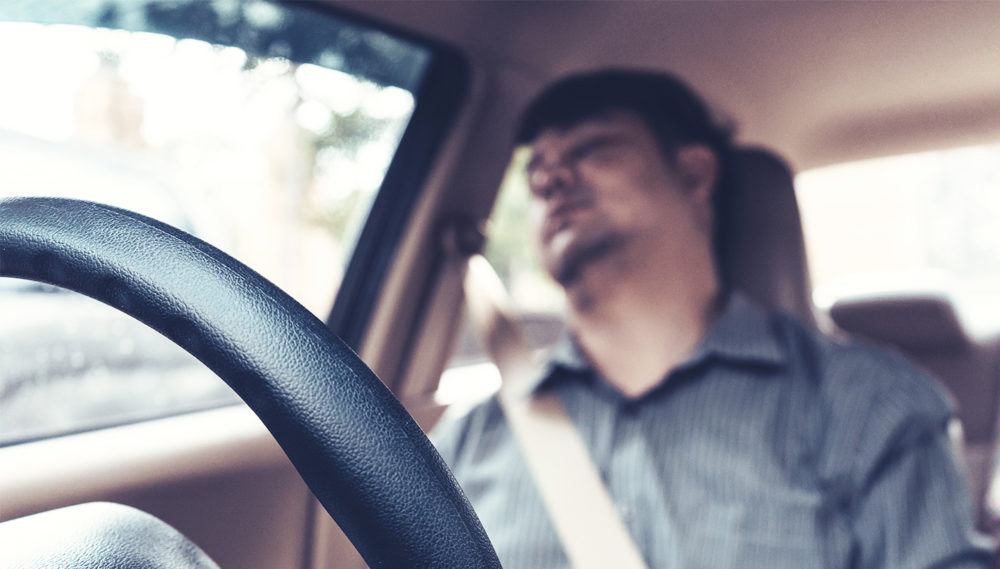Beware of Automatic Behavior Syndrome While Driving
30 October, 2023

Traveling long distances without adequate rest can have fatal consequences due to excessive fatigue while driving. Drivers who drive for extended periods may experience Automatic Behavior Syndrome (ABS), which is quite common among drivers who are overly tired.
Therefore, during long journeys, drivers should manage their time for driving and resting. Stopping at rest areas when traveling on toll roads, for example, is a good practice. Proper rest is essential to maintain the body’s condition in its prime, ensuring there are no errors while driving and that the journey remains smooth until the destination is reached.
What is Automatic Behavior Syndrome (ABS)?
Automatic Behavior Syndrome (ABS) is a phenomenon where an individual performs actions or activities unconsciously. ABS, also known as automatism, involves the mind carrying out tasks without conscious intent. Unconscious actions can range from simple tasks like walking or eating to more complex behaviors, such as driving a car.
Furthermore, ABS is a condition where an individual experiences extreme fatigue. In this state, staying awake becomes challenging, even when stimulated to wake up. A driver may operate a vehicle unconsciously with a blank mind, making it difficult to awaken when honked at by other drivers. In such a state, accidents while driving can be exceptionally dangerous.
Extreme fatigue leading to ABS can result from various factors, such as lack of sleep, excessive activity, or stress. Driving without adequate rest also falls into the category of excessive activity, contributing to physical exhaustion.
The duration of an ABS episode varies, lasting from a few seconds to several minutes. The concern lies in the recurring nature of ABS episodes while driving. Therefore, it is crucial for drivers to rest and eat sufficiently before hitting the road. While on the journey, it is advisable to prevent fatigue by consuming mineral water to regain focus.

Symptoms of Automatic Behavior Syndrome
The symptoms of automatic behavior syndrome can vary depending on their causes, with individuals sometimes unaware of the symptoms. Therefore, it is essential to pay close attention to one’s own physical condition.
Some common symptoms include:
-
Automatic Body Movements
Performing actions or movements unconsciously, such as pressing buttons on the steering wheel or turning on lights without awareness.
-
Automatic Conversations
Individuals may talk or respond to questions unconsciously or with responses that lack coherence, often without remembering the conversation.
-
Automatic Activities During Sleep
ABS can occur during sleep, with individuals engaging in body movements or other activities without awareness.
-
Disruption in Actions
These symptoms can lead to unusual or potentially dangerous behavior, such as unconscious driving resulting in accidents.
Distinguishing ABS from Microsleep*
In addition to automatic behavior syndrome, there is a condition called microsleep that is more frequently experienced by drivers. Both of these dangerous conditions can lead to accidents. Drowsiness on the road is a common cause of accidents.
Both of these symptoms are the main reasons often experienced by many drivers on the road when feeling tired. Although both are related to sleep disorders, there is a significant difference between the two.
The definition of automatic behavior syndrome primarily involves drivers performing certain actions without full awareness or memory of those actions. The causes include significant sleep deprivation, uncontrollable fatigue, and disturbed mental states such as stress when facing the road or annoying fellow drivers.
Microsleep, on the other hand, is a condition where someone loses consciousness or attention due to feeling sleepy, resulting in sudden but very brief periods of sleep. The duration of sleep that occurs in someone can vary, but generally lasts from one second to two minutes. Additionally, individuals may experience a sudden jerk of the head.
The causes of microsleep are often attributed to chronic sleep deprivation, excessive sleepiness, or certain medical conditions. It frequently occurs when drivers cover long distances for extended periods of time. The monotonous scenery on toll roads can lead to driver fatigue and boredom, causing drivers to fall asleep for a fraction of a second. This can happen to any driver, even those with good sleep quality.
Avoiding ABS: Tips and Recommendations
Considering its definition, ABS occurs due to the extreme fatigue experienced by drivers. Therefore, here are some ways to avoid ABS:
-
Adequate Rest and Sleep
Ensure sufficient sleep during breaks. Engage in light physical activities to prevent stiffness from prolonged inactivity. Maintain a healthy diet to stay in prime condition.
-
Stress Avoidance
Stress and anxiety can worsen sleep disorders, including automatic behavior syndrome. Try relaxation techniques such as meditation, yoga, or breathing exercises to reduce stress levels.
-
Avoid Alcohol and Drugs
The consumption of alcohol and certain drugs can trigger ABS symptoms.
-
Do Not Drive When Sleepy
To prevent ABS, refrain from driving and avoid engaging in hazardous activities when feeling drowsy.
-
Consult a Doctor
If you are experiencing ABS or other sleep disorders, consult a doctor or neurologist for further evaluation and appropriate treatment.
Through the explanations above, it is evident that Automatic Behavior Syndrome poses significant dangers and can result in casualties in the event of an accident. Therefore, maintaining bodily condition is crucial to remaining alert and fit while traveling by car.
Ensure that you preserve your condition by resting and eating adequately when stopping at a rest area. Utilize your rest time wisely to arrive at your destination safely.



